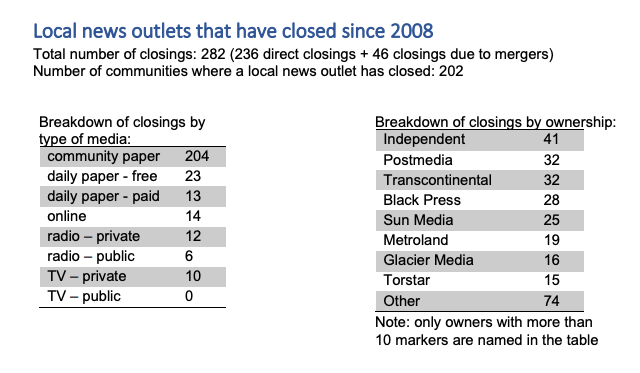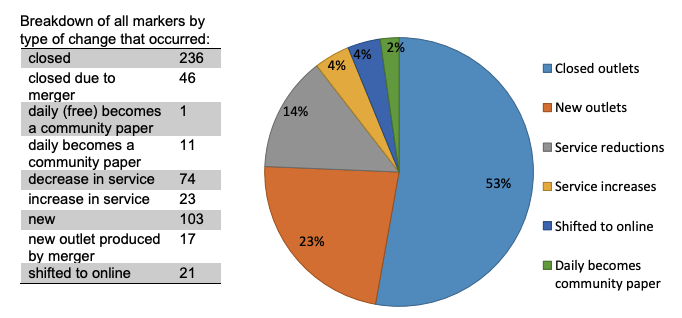O Canada! We stand on guard for thee, God keep our land glorious and — free.
The idea of freedom of the press, “is simply an extension of freedom of speech,” states Media Law for Canadian Journalists by Dean Jobb.
The earliest history of press freedom in Canada dates back to 1835 and “has been hailed as ‘the most momentous freedom-of-the-press precedent’ in early Canadian journalism,” writes Jobb.
To sum up this historical event in Canadian journalism history, Jobb writes: “On New Year’s Day 1835, The Novascotian published a letter accusing the magistrates in charge of Halifax’s police department, poor asylum, and other services of pocketing £1,000 a year at the expense of the ‘poor and distressed.’ The outraged magistrates struck back, urging Nova Scotia’s attorney general to charge The Novascotian’s proprietor, Joseph Howe with criminal libel.” At this time, truth was not yet recognized as a defence to libel.
Howe then chose to represent himself at trial. He captivated the jurors for six hours with fresh allegations of civic corruption. He ended his speech by challenging them, “To leave an unshackled press as a legacy to your children.”
He moved one juryman to tears and despite the judge’s reminder to the jurors’ that their duty was to follow the law and find Howe guilty, they returned ten minutes later with an acquittal.
“The press of Nova Scotia is free,” the following edition of The Novascotian said. The rest is history.
Many people still believe that the press has freedom, but to what degree?
According to J Source, an online publication based in Toronto, since 2008 over 250 Canadian news media outlets have closed.


The current state of journalism in Canada is a bit of a crisis. Economic factors are at play; traditional forms of advertising have eroded, causing the “shuttering of local media outlets across the country —particularly newspapers,” says voices-voix.ca, a non-partisan coalition of Canadians and Canadian organizations.
This has even led larger media conglomerates like Postmedia and Torstar to look for government assistance as these traditional revenue models fail.
Then came the proposed media bailout.
According to an article by CTV News, the program will likely cost $45 million between 2019-20 and will rise to $165 million by 2023-24.
Finance Minister Bill Morneau said in a speech to the House of Commons; “To protect the vital role that independent news media play in our democracy and in our communities, we will be introducing measures to help support journalism in Canada.”
While they strive to support journalism in Canada, they have received a lot of criticism. The Conservatives accused the Liberals of trying to bribe the news media ahead of the election. Others have questioned how such funding could impact a journalist’s objectivity.
But remember, don’t bite the hand that feeds you.
Jobb writes on page 356 of the third edition of Media Law for Canadian Journalists, “Accepting gifts and favours undermines a journalist’s reputation for independence and credibility. Even the appearance of being influenced may erode the public’s confidence in the journalist’s objectivity.”
Is this not hypocritical?
Many media outlets have policies regarding gifts, free trips etc. and they advise against them. Depending on the size of the gift and if they are deemed in good spirits, accepting them is permissible. As Nick Russell says in Media Law for Canadian Journalists, “It would be foolish to ban every gift of every nature and let rule-obedience ruin friendships and the natural flow of relationships.” These gifts are usually given away as a donation to a local charity.
The CBC’s policy is to refuse any gift, benefit, or money that is offered to influence — or that would appear to influence. The Globe and Mail’s code of conduct states that newsroom staffers “may accept no benefit of more than token value offered to them because they work for the newspaper.
So doesn’t accepting a media bailout seem hypocritical, insensible and straight-up foolish?
It takes away credibility from journalists, as some people think it is an attack on our democracy and free speech.
Jennifer M. Clarke on Twitter said,
In a column in the National Post, Andrew Coyne writes: “Whether this is done directly by the prime minister or by his designates, whether the preference is based on partisanship, or ideology, or connections, or mere incumbency, it is not an appropriate role for government in a democracy. Subsidizing speech the government likes is not materially different from suppressing speech it doesn’t like, and indeed may have much the same effect.”
During the 2019 election, there was only a select number of accredited journalists allowed into the Federal Leaders’ Debate. Some other media was denied access until one organization launched legal action to be granted permission to cover the Federal Leaders’ Debate. That organization was The Rebel News.
“Last week started with a great win for media freedom. Justin Trudeau’s hand-picked election debates commission in collusion with the government-funded parliamentary press gallery had rejected the accreditation request of two rebel journalists — Keean Bexte and David Menzies and our friend Andrew Lawton from True North,” said Ezra Levant in a video by Rebel News.
“Trudeau sent five government lawyers to oppose our emergency application. But miracle of miracles, we won. Justice Russell Zinn issued a court order directing Trudeau’s staff to accredit the three journalists,” he said.
A great win indeed. If all journalists were allowed into these debates, this would have never happened.
What happened to freedom of the press?
The future of journalism is somewhat uncertain, but we need to keep ourselves true in order to produce content for our audiences.
Journalism in 10-15 years may not be the traditional print newspaper anymore, but it’s evolving into a new species. Online publications will likely replace newspapers and who knows what else?
Moreover, journalism is an essential part of our democracy. If we cannot hold people in power accountable — we’ve lost everything.

